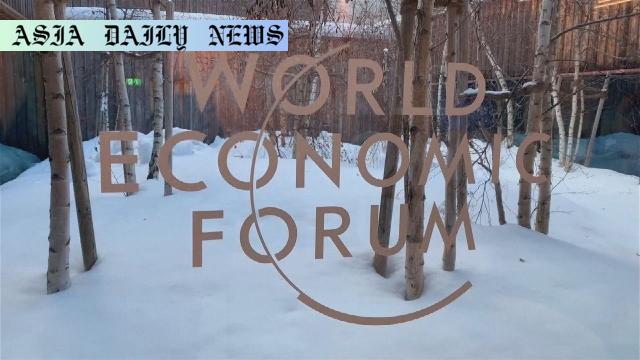Global leaders convene for the World Economic Forum in Switzerland, discussing critical global economic and political issues.
World Economic Forum 2025 opens in Davos with 3,000 global leaders participating.
US President Donald Trump is scheduled to participate remotely on Thursday.
Key discussions include global trade, climate change, and Ukraine’s situation.
Ukrainian President Zelenskyy aims to secure ongoing support for Ukraine.
Over 200 sessions will cover topics such as AI, global risks, and economic policies.

Introduction to Davos 2025
The World Economic Forum (WEF) convened its annual meeting in Davos, Switzerland, bringing together over 3,000 global leaders from across 130 countries and regions. This year’s discussions are anticipated to address pressing global issues such as trade, economic risks, climate change, advancements in artificial intelligence, and the ongoing conflict in Ukraine. Taking place amidst a rapidly changing geopolitical and economic landscape, the forum holds even greater importance in fostering international dialogue and collaboration.
Trump’s Virtual Participation
A key highlight of the forum is the participation of US President Donald Trump, who will attend virtually on Thursday. This marks a significant moment as the global community seeks insight into the policies of Trump’s new administration, particularly in areas such as global trade, tariff adjustments, and responses to Russia’s escalating aggression in Ukraine. While his virtual appearance deviates from the in-person engagement typical of Davos, it is likely to draw significant attention due to the strong influence of US policy on the global stage.
Zelenskyy’s Call for Support
Ukrainian President Volodymyr Zelenskyy is expected to deliver a powerful address on Tuesday, emphasizing the need for continued international support for Ukraine amidst Russia’s ongoing invasion. Given the backdrop of an intensified Russian offensive, Zelenskyy’s speech will likely focus on mobilizing further military, economic, and humanitarian aid for his country. His presence underscores the forum’s role as a platform for urgent geopolitical discussions.
Key Agendas at Davos 2025
The Davos meeting will host over 200 sessions addressing a broad array of global challenges. Among these, topics like climate change policies, emerging technologies such as artificial intelligence, and risks to the global economy will take center stage. Business leaders and policymakers aim to collaboratively navigate uncertainties and seize opportunities within an interconnected global system. Amid the challenges posed by inflation, supply chain disruptions, and shifting geopolitical alliances, the forum offers a crucial space for dialogue and innovation.
Economic Risks and AI
Economic risks remain a dominant concern for many attending the forum. Discussions are likely to focus on strategies to combat recessionary trends, stabilize markets, and foster sustainable growth. Likewise, advances in artificial intelligence are poised to transform various industries, raising ethical and regulatory questions that demand collective attention. Experts in technology, policy, and ethics will deliberate on balancing innovation with responsible oversight.
Global Climate Change Commitments
Climate change discussions are expected to take a prominent role, with a renewed emphasis on global commitments to carbon neutrality and the implementation of sustainable practices. Leaders will collaborate to further bolster green energy initiatives and address the growing climate-linked economic and humanitarian crises. This reinforces Davos’s ongoing commitment to driving concerted global action towards environmental sustainability.
Conclusion
Davos 2025 represents more than just a meeting of minds; it symbolizes hope for unified action amid global challenges. With notable leaders such as President Trump and President Zelenskyy contributing to the discussion, the forum aims to shape the trajectory of key global issues ranging from economic stability to geopolitical conflicts. As the week unfolds, the results of these dialogues will likely impact the global narrative for the months and years to come.



Commentary
The Importance of Davos 2025
This year’s World Economic Forum is a testament to the pressing need for global collaboration. With 3,000 leaders and representatives from over 130 countries, Davos provides an unparalleled platform to address the world’s most urgent economic, environmental, and political challenges. In a time of rising tensions, from climate change to geopolitical conflicts, forums like these play an essential role in fostering dialogue and shared responsibility.
Trump’s Participation – A Global Watchpoint
The virtual attendance of US President Donald Trump is bound to raise significant interest. Given his administration’s potential shifts in policies related to trade, tariffs, and geopolitics, this year’s forum offers a key opportunity for the global community to adapt to or anticipate US policy directions. President Trump’s engagement, albeit remote, signals the continuing importance of American leadership in confronting global challenges, particularly amidst the Ukraine conflict.
Hope for Cooperation Amid Crises
As leaders deliberate on key issues during Davos 2025, let us hope that their efforts translate into meaningful action. The challenges the world faces—from economic instability to environmental degradation—require both urgency and cooperation. It’s crucial that discussions at this high-profile meeting lead to tangible outcomes, fostering resilience and progress for the global community. The stakes couldn’t be higher, and Davos stands as an essential crucible for change.